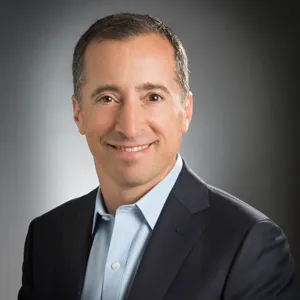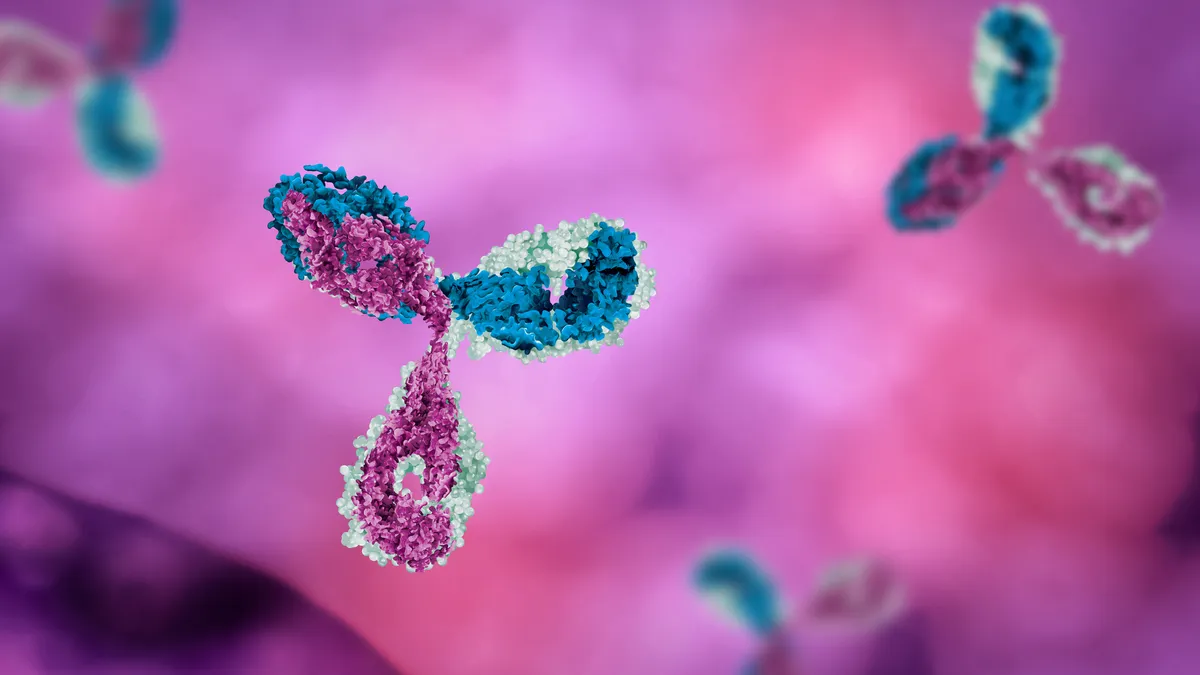In focus with: Fabian Tenenbaum, CEO, Nectin Therapeutics

Nectin's vision: While blockbuster checkpoint inhibitors like Merck & Co.'s Keytruda and Bristol Myers Squibb's Opdivo have revolutionized cancer care for about a decade, these oncology stalwarts still have their shortcomings. In particular, their method of action — blocking signals that keep the immune system from attacking cancer cells — is effective in tumors with strong mutations of a certain kind. Tumors without those specific mutations are able to resist treatment.
That's where Nectin Therapeutics is aiming its own checkpoint inhibitors and antibody-drug conjugates. By employing a different and complementary pathway to kickstart the immune system, the company’s treatments could help these immuno-oncology drugs fight more cancers of various types.
The strategy: Nectin has only one clinical candidate called NTX1088 in early-stage trials — but the company has teamed up with pharma giant Merck to test the treatment alongside the bestselling Keytruda, a checkpoint inhibitor that uses the PD-1 pathway and is approved in dozens of indications. This gives Nectin a shot at demonstrating that its drug can work on its own and that it can fill gaps in Keytruda's checkpoint inhibition.
In earlier development stages, Nectin has one more checkpoint inhibitor with an investigational new drug permission expected in 2024 and three antibody-drug conjugates just out of preclinical tests.
The Israeli company extended a primary funding round in November to reach more than $25 million to support the development of NTX1088 and its pipeline activities.
Why it matters: Although the checkpoint inhibitor space has been saturated with effective drugs, up to 80% of patients don't respond to these therapies. Leaders in the pharma industry have said that the future of cancer care is in drug combinations to connect the dots in tumor types and specific mutations, and Nectin could play a role in bringing that landscape to fruition.
This interview has been edited for brevity and style.
PHARMAVOICE: Tell me a little about how your technology addresses resistance to immuno-oncology treatments.
FABIAN TENENBAUM: Despite the fact that immuno-oncology has essentially taken center stage in the treatment of a lot of solid tumors, unfortunately still the vast majority of patients don't see a response or a durable response to the available therapies. So there are significant challenges in trying to understand and then resolve those patient populations and tumors that do not benefit. What we do at Nectin is leverage unique insights that started at the Hebrew University in Jerusalem before the company was formed to use the nectin pathway, which is a family of proteins that are expressed in immune cells and on cancer cells and play a complex role in the relationship between the immune cells and the tumor cells. Often these relationships are intercrossed, complex and sometimes surprising. So our team has uncovered a lot of these mechanisms and relationships between the different receptors, and we're developing therapies that intervene in a way that helps the immune system fight cancer more effectively and deal with the escape mechanisms, which are ways that the tumor cells either intrinsically or adaptively acquire the ability to evade the immune system.
Based on Keytruda's success, is a combination with that treatment something you always imagined your own technology would be good for?
We started uncovering in the preclinical work both in vitro and then in animal models that NTX1088, an anti-PVR monoclonal antibody, has a very potent activity and is able to deal with and kill cancer cells very effectively. And there are models that we know if you use a PD-1 blocker like Keytruda, you do not see any kind of regression in the tumor — in those models, we've been able to demonstrate clearly that NTX1088 delivers a potent benefit.
As we were exploring further, we realized that in some tumors, there is a very potent synergy between the PD-1 and the PVR axis, and the combination of the two creates a synergistic benefit that's superior to each of these alone and potentially opens the door for the PD-1 to be usable.
And Keytruda is the most compelling partner we can find. So yes, very early on, we started using Keytruda in preclinical models as the kind of PD-1 that we would love to use. We spent a lot of time with Merck's scientific team looking through our data to find the rationale for that combination. Clearly in our mind from a biological perspective and preclinical models, we're glad that we were able to showcase that to the Merck team and essentially establish PVR as the unique and novel class that it is.
One of the biggest difficulties in immuno-oncology is finding the right patients. How do you go about that?
We have knowledge around the general PVR expression in certain types of tumors, and without getting into too many details, we are looking at a very robust biomarker strategy, including PVR expression in these tumors. This is an adaptive design that will study the efficacy and molecular response as a functional expression of several critical biomarkers to continue to dial in on the precision of the patients that could most likely benefit from the therapy. Broadly speaking, where we're starting is in this basket of advanced solid tumors that are known to express PVR.
One compelling additional part of this program is that we've initiated a partnership with the MD Anderson Cancer Center, and they have a proactive approach that goes out and seeks immuno-oncology therapies they believe are interesting to bring to their patients. They are highly experienced in these types of trials and patients from all over the world get treatment there. They specialize in identifying patients that need an investigational new drug that could be relevant for their type of cancer.
How do you stand apart from other oncology companies in your vision?
Our focus on developing therapies that emerge from our development platform within the nectin pathway and therapies that are uniquely designed to address the exact loopholes within the immuno-oncology treatment paradigms. So we're seeking these novel and yet-to-be well-understood biological pathways that we feel could play a very critical part in how cancer can be treated and how we can make a dent in that 80% and bring that down.
As an Israeli company, we benefit from the startup mentality and the ability to think outside the box of these pathways. I think you need a certain type of mindset to just follow the science and figure out things that potentially, initially are considered wrong. The venture ecosystem in Israel is very prolific and robust, and able to finance companies like Nectin to take these risks and explore the science.













